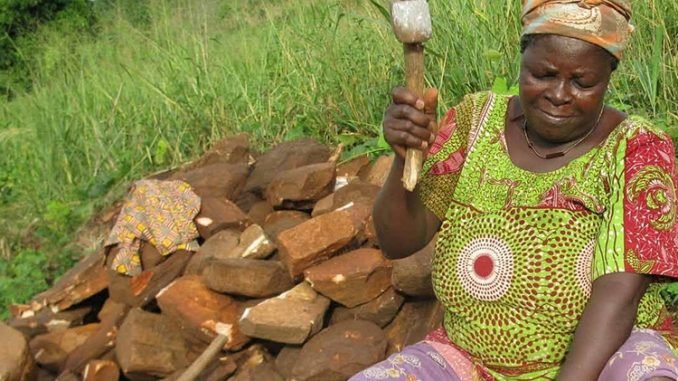
Kampala, Uganda | By Sam Ntale | World Bank advocates giving women equal chances as their male counterparts to increase productivity.
“Uncle please buy from me so that I get money for hospital bills to treat my child”, pleaded Juliet Kabete after seeing that we had spent some Shs 10,000 buying from two of her neighbors.
With teary eyes she showed us her two-year old boy who suffered from a swollen neck and pleaded further, “Please, help me so that I treat this child. His dad died and the man I have does not care about children he has not fathered”.
With probing we discovered that Kabete, a 21-year-old mother of four from three different men, has been twice at the referral hospital where health personnel have demanded from her Shs 60,000 to treat her son, whose swelling had long-ago turned septic.
Kabete is among the scores of young mothers selling fruits and traditional snacks like roast maize, plantains (Gonja), cassava and sweet potatoes at bus stop shelters along the Northern Bypass.
She is only one of a billion women that have joined the world labor force over he past 30 years. But, like Kabete, who could not afford treatment for her child, their efforts remain stifled by gender inequalities in the society in which they live, according to a new report from the World Bank, “Gender Equality Matter for Development”.
Kabete and her colleagues are some of the poor women who have no say over decisions and have no control over resources in their households and in society, as the report highlights.
“I gave birth to my first child at 15”, said 19-year-old Mwajuma Nakintu, one of the women selling along with Kabete. “Then my father said he could not continue paying fees for me when I will end up getting married to another clan. So the earlier he got dowry to maintain my brothers at school, the better it was for him”.
She added, “My brother, whom I follow and the one who follows me are in vocational institutes. My two other sisters are also being told they are to be married off soon. We were told by our father that the earlier we get married when we are still young, the better for us than growing old and less attractive for marriage”.
Without education, Nakintu was forced to work in the growing informal sector, where she will surely make less than an equally educated man. In its World Development Report 2012, the World Bank asserts that gender equality is a core development objective in its own right, adding “it is also smart economics”.
The report released late last month cites persistent gender gaps where girls and women face other disadvantages or where markets fail. Poor service delivery institutions and social norms combine to limit progress, ranging from excessive deaths of girls and women, disparities in girls’ schooling, unequal access to economic opportunities and differences in voice in households and society.
“Despite overall progress, primary and secondary school enrollments for girls remain much lower than for boys or disadvantaged populations in many sub-Saharan Africa”, the Bank’s report states. It finds that females are more likely to die in relation to males in many low- and middle-income countries than in their counterparts in rich countries. The death rate in low- and middle-income countries is estimated to be 3.9 million women and girls each year under the age of 60.
“This number is growing in sub-Saharan Africa, especially in childhood and the reproductive years and in countries hardest hit by the HIV/AIDS epidemic”, the report found.
Women are more likely than men to work as unpaid family laborers or in the informal sector, to farm smaller plots and less profitable crops than men, or operate in smaller firms and less profitable sectors.
“As result, women everywhere tend to earn less than men”, the Bank reveals, a truth that is borne out in Uganda through the examples of Kabete and Nakintu.
In his main speech of the World Development Report 2012, World Bank Group President Robert B. Zoellick argued that greater gender equality can enhance productivity, improve development outcomes for the next generation and make institutions more representative.
He said that the most important part is tapping the promise and power of women by eliminating gender inequality.
“We will not release the full potential of half of the world’s population until we globally address the issue of inequality”, he said. “Until countries, communities, households around the world acknowledge women’s rights and change the roles of inequality.”



